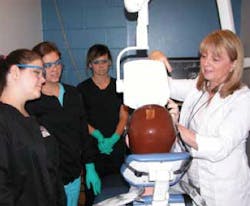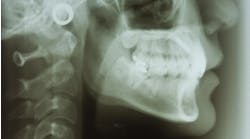Dental assisting is certainly an exciting and rewarding career. Working as a dental assistant never gets old as there is always something new to learn and always another technology to master. Research and innovation in dentistry is advancing by leaps and bounds, and professional dental assistants must continuously reach for new knowledge as dentists embrace the latest and greatest techniques in caring for patients.
Now that many states are expanding their dental practice acts and enabling dentists to delegate some advanced functions, opportunities for advancement are increasing for dental assistants. With these opportunities another need in the dental assistingprofession is quickly being realized, and that’s the need for additional qualified dental assisting instructors.
Dentists in the 21st century dentists no longer take the time to train individuals with no dental experience to be dental assistants. The cost of new technology requires high production levels to meet increased overhead. Trying to save pennies by employing inexperienced individuals slows dentists down, potentially costing them more in production than what they save on salary. Graduating dentists have enormous debts related to their education and have an urgent need to produce. Regardless of the situation, dentists are counting on a knowledgeable and skilled dental assisting workforce to be in place to help them meet their professional goals. This means there’s a high demand for formally trained dental assistants.
With regard to dental assisting training that includes advanced functions, many state dental boards are looking to the American Dental Association’s Commission on Dental Accreditation (CODA) accredited formal training programs as the premier benchmark to provide the core education. While other paths may exist for non-CODA trained dental assistants to achieve these credentials, CODA graduates will have the advantage.
If dental assisting education sounds like something for you, you have some work to do. If you want to teach in a state funded secondary school or postsecondary institution of higher learning, go after that baccalaureate degree now. Most state-funded secondary and postsecondary institutions require this degree as a minimum of their health science program instructors. If the program is CODA accredited, all instructors must hold the Dental Assisting National Board Certified Dental Assistant (CDA) credential, and as of 2018 have a baccalaureate degree. There are many opportunities to earn a baccalaureate degree quickly online. Counselors and financial aid specialists at the colleges and universities will be happy to help you achieve your educational goals.
There are many other opportunities to begin a career in dental assisting education even without a formal college degree. Contact some of the proprietarily owned dental assisting programs and ask about their instructor prerequisites. Many of them value the high levels of experience the professionals bring to their programs. A vast portfolio of dental CE experiences is also impressive.
Even if you’re not ready to leave clinical practice, it’s never too soon to prepare for the future. Someday, you just might be inspired to go to that next level toward a professorship or another position in dental assisting academia. Invest in yourself – you can never go wrong with more education! Whether you work toward a college degree, pursue ADAA Fellowship/Mastership designation, or earn a national or state credential, additional learning and achievement will always serve to advance your career.
And dental assistants: when you start getting that restless urge to try something new for a career, think about dental assisting education. You already have a jump start and the job outlook looks bright!
The American Dental Assistants Association (ADAA) has proudly been the recognized voice of dental assisting for 90 years. It remains committed to promoting quality dental health care to the public and enhancing the public image and stature of the dental assisting profession. For more information on the Association, visit www.adaausa.org.









